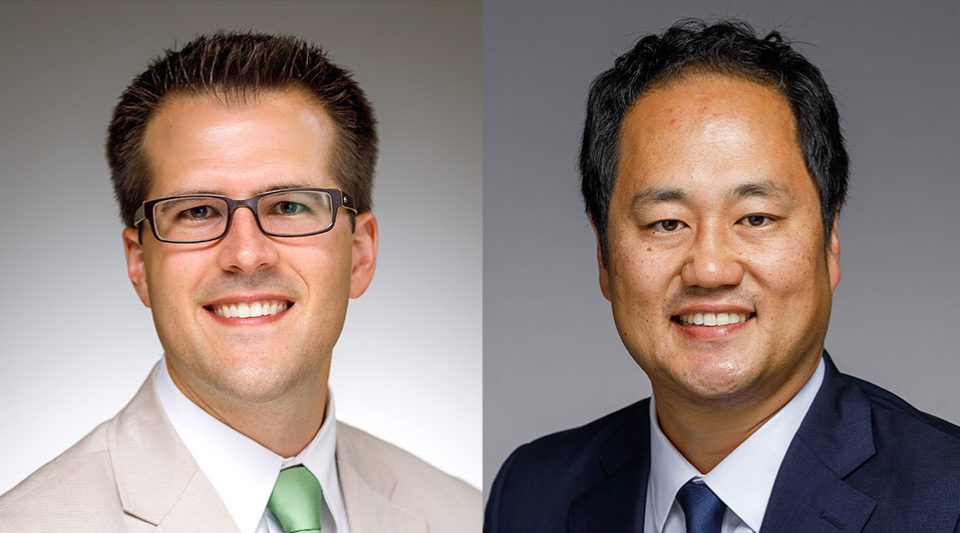Patrick M. Wensing and Sangpil Yoon, both assistant professors in the Department of Aerospace and Mechanical Engineering, received 2020 National Science Foundation (NSF) Early Career Development (CAREER) Awards. The CAREER Award is one of the highest honors given by the U.S. government to young faculty members in engineering and science.
Patrick Wensing’s work focuses on dynamic systems and control of applications in robotics, specifically developing greater mobility for legged robots and assistive devices. He also studies human-machine interface technologies, such as for assistive exoskeletons in rehabilitation applications.
His CAREER project, titled “Task-Level Coordination of Motor and Machine for Fluent Lower-Limb Prostheses,” will explore the role of whole-body balance in the development of a new paradigm for powered prostheses. Wensing will examine the interplay between human motor function and powered prostheses to improve comfort, increase mobility and reduce falls for the more than 600,000 Americans with lower-limb amputations.
His project also includes the development of new educational opportunities and curricula targeting graduate students, undergraduates and at-risk middle school students.
Wensing received his doctorate from The Ohio State University in 2014. Prior to joining the Notre Dame faculty in 2017, he served as a postdoctoral associate in mechanical engineering at the Massachusetts Institute of Technology.
Sangpil Yoon’s research encompasses the development of diagnostic and therapeutic devices for cell engineering in cancer treatment, including personalized immunotherapies such as adoptive cell transfer (ACT). During ACT, a patient’s T cells are removed, engineered to better recognize cancer cells, then returned to the blood stream.
Yoon’s CAREER project, titled “The Next Generation Intracellular Delivery Device for Immunotherapy: The Integration between Ultrasonic Transducer and Microfluidic Chip (UXuChip),” proposes the development of a novel intracellular delivery device that would provide a more reliable technique to reinfuse a patient’s T cells once they have been reengineered. This new device would improve molecule delivery efficiency while also maintaining T cell anti-tumor activity.
In addition to work in the lab, Yoon will be developing educational activities for postdoctoral researchers, graduate students, undergraduates and high school students highlighting ultrasound imaging, microfluidic chip development and cancer therapies.
Yoon received his doctorate from the University of Texas at Austin in 2012 and served as a postdoctoral research associate at the University of Southern California until 2018, when he joined the Notre Dame faculty.
— Nina Welding, College of Engineering
